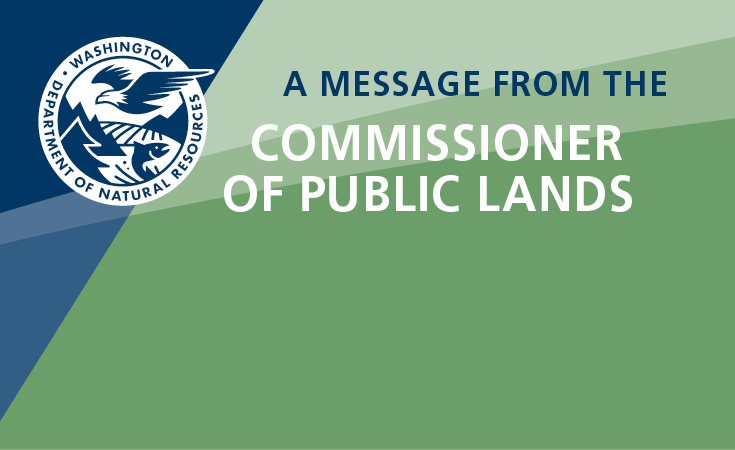
Leasing and Land Transactions
Projects taking place on or over state-owned aquatic lands require an authorization from DNR -- as well as necessary permits from other agencies such as Washington Department of Fish and Wildlife, Ecology, the U.S. Army Corp of Engineers, the U.S. Coast Guard and local jurisdictions, depending on the type of use and the location.
You may obtain permits and a DNR use authorization through a streamlined application process called the “Joint Aquatic Resources Permit Application (JARPA) and Attachment E.”
A DNR authorization is a legal contract, different from regulatory permits obtained from other agencies. DNR contracts outline the terms and conditions of the use and convey certain property rights to the user in exchange for rent.
To avoid delays in receiving an authorization, we recommend that project proponents contact staff from DNR's Aquatic Resources Program early in the design process, before applying for permits for the following reasons:
- To ensure the land is available
- To determine if the proposed use is appropriate
- To avoid or minimize impacts to aquatic resources
After we consult with you, DNR will work closely with permitting agencies to communicate our expectations.
Installing a recreational mooring buoy or boatlift on state-owned aquatic lands? Download our guidelines for preparing the JARPA.
Have questions? Want to find out if your project will be on state-owned aquatic lands?
View the DNR Aquatics Land Manager Coverage Map to find your county's aquatic land manager contact or find a phone number in the upper right of this page under "CONTACTS."
If you already lease aquatic lands with DNR
When it is time to renew your lease, DNR may propose new practices to modernize your plan of operations. Work with your aquatic land manager early to avoid wasted time and/or expenses.
View leases or applications to use state-owned aquatic lands by DNR aquatic districts:
More information on using state-owned aquatic lands:
-
Grant Projects on State-owned Aquatic Lands (What you need to know about applying for grants from the Recreation and Conservation Office--for state and federal partners)
-
Collaborating with the Washington State Department of Natural Resources (Fact sheet for state and federal regulatory agencies and local jurisdictions)
DNR - Steward of State-owned Aquatic Lands
DNR is steward of 2.6 million acres of state-owned aquatic lands. On behalf of the people of Washington, we manage the resources attached to or embedded in aquatic lands (ex. seaweed, shellfish, sand, minerals and oil), as well as the man-made structures in the water and air space above these lands.
Through the state constitution and Legislature, DNR must ensure a balance of benefits for the citizens of Washington from the use of aquatic lands. These benefits include:
-
Commerce and navigation
-
Public use and access
-
Use of renewable resources
-
Protection of the environment (the health of these aquatic lands)
-
Generate an economic return to citizens (when appropriate)


